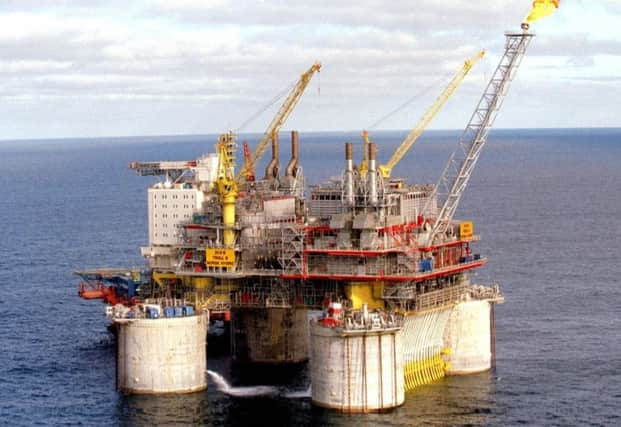Tom Baxter: Myths about North Sea decommissioning


Shell recently announced its proposals for the Brent field, which has shut down after 40 years. But there are a number of myths surrounding the decommissioning process that should be considered before the next steps are taken.
Oil companies claim they will be paying for decommissioning. Actually, the taxpayer will foot much of the bill. According to Shell: “The tax relief we will get back is not a subsidy or a new cost to the taxpayer – it’s a refund – ie the tax has already been paid by Shell and Esso in previous years.”
Advertisement
Hide AdAdvertisement
Hide AdThat is spin. If decommissioning comes in at the £50 billion estimate, the Treasury (taxpayer) will be down by around £25bn. If the costs are higher, the Treasury pays more – a huge risk.
The environmental benefits of removal are also dubious. Indeed some decommissioning activities will do more harm than good. Left in place, the architecture will form an artificial reef and provide new marine habitat.
It’s said that removal will provide an onshore jobs bonanza. Not so. Onshore activities account for around 3 to 5 per cent of the overall decommissioning costs. The jobs are transient; once the task is complete there is no follow-on.
Decommissioning is mooted as good for the economy. How can an industry that produces nothing and uses billions of taxpayers’ money be good for the economy? Then there are the OSPAR directives, set out to protect the marine environment of the north-east Atlantic. They are well-intentioned but take the nation to a poor outcome. So why are we not challenging them?
The most pressing environmental issue of our time is climate change. If our aim is to combat warming then surely making offshore infrastructure clean and safe and using the cash earmarked for removal to fund green energy projects is a more sensible option? Creating green energy stations would provide sustainable jobs in design and construction and provide maintenance work over 30 to 40 years.
Unlike decommissioning, green energy would be UK-based and pay taxes. Furthermore, it would provide an essential commodity – power for industry, electric transport and heat for homes. Even OSPAR should be able to see green energy has a better outcome for the international community.
The role of the Oil & Gas Authority (OGA), an agency of the UK government’s Department for Business, Energy and Industrial Strategy, is to regulate, influence and promote the UK oil and gas industry in order to maximise its economic recovery. But how can the current decommissioning plans be maximising economic recovery? Reducing removal costs by 30 per cent is a good aim, but why do it if there is greater benefit from investing the money in green energy? The OGA told me their role is to ensure OSPAR is followed and not to challenge it. Surely if we’re witnessing a poor use of taxpayers’ money the OGA should be lobbying Westminster. The Scottish Government is doing no better. They say it’s a Westminster and OGA matter. Does that mean you don’t challenge something you see is clearly wrong? OGA and the Scottish Government – there is an elephant in the room.
Tom Baxter is a senior lecturer in chemical engineering at Aberdeen University and has 40 years experience in the oil and gas industry